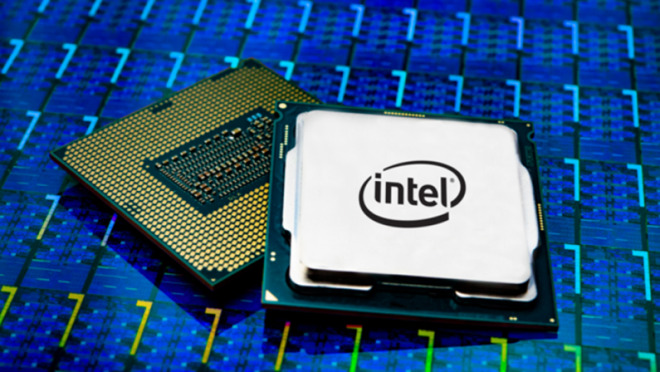Intel delays rollout of 7-nanometer chips by six months
Intel has delayed the rollout of its 7-nanometer CPUs by six months and is instead shifting focus to 10nm-based products.

Credit: Intel
The chipmaker announced the delay in its second quarter earnings report on Thursday. Previously, it anticipated shipping 7nm chips by 2021.
In its release (PDF link), Intel said the primary driver of the delay is yield issues which "based on recent data, is now trending approximately twelve months behind the company's internal target." Essentially, Intel can't manufacture 7nm chips in an economically sustainable way.
Intel said it would continue to focus on its 10nm family of chips in the interim, including new "Tiger Lake" products and planned "Ice Lake" server chips. Some current generation Macs, like the 16-inch MacBook Pro, use 10th-generation Ice Lake-based processors.
Apple, for its part, has been using 7nm chipmaking process for its A-series since 2018.
The slowing pace of development from Intel and an uptick in chip delays are likely two of the reasons why Apple is set to ditch Intel chips in favor of its own first-party Apple silicon. Apple announced the transition, which is expected to take two years, at its WWDC conference in June.
Beyond the 7nm delay, Intel reported better-than-expected earnings results for the quarter. That was largely based on continuing business from cloud service providers.

Credit: Intel
The chipmaker announced the delay in its second quarter earnings report on Thursday. Previously, it anticipated shipping 7nm chips by 2021.
In its release (PDF link), Intel said the primary driver of the delay is yield issues which "based on recent data, is now trending approximately twelve months behind the company's internal target." Essentially, Intel can't manufacture 7nm chips in an economically sustainable way.
Intel said it would continue to focus on its 10nm family of chips in the interim, including new "Tiger Lake" products and planned "Ice Lake" server chips. Some current generation Macs, like the 16-inch MacBook Pro, use 10th-generation Ice Lake-based processors.
Apple, for its part, has been using 7nm chipmaking process for its A-series since 2018.
The slowing pace of development from Intel and an uptick in chip delays are likely two of the reasons why Apple is set to ditch Intel chips in favor of its own first-party Apple silicon. Apple announced the transition, which is expected to take two years, at its WWDC conference in June.
Beyond the 7nm delay, Intel reported better-than-expected earnings results for the quarter. That was largely based on continuing business from cloud service providers.

Comments
Apple isn’t afraid of walking away from suppliers when they can’t perform.
If Intel provided superior tech to what Apple could do in-house, there's little to no reason why Apple would ditch them. This is why Apple still uses 3rd parties.
That is:
- why there are so many mobile chips in Apple's range of desktop machines
- why their laptop range barely gets bumps and has had no significant design changes in years
- why the entire mac range has stagnated to the point that people think Apple have given up on the Mac
Of course Apple want full control also, meaning they can further enhance the relationship between their hardware and software, have exclusive benefits in their hardware, but crucially have long term strategies in play for their hardware and device ranges.
But... they did have the experience with 14nm delayed a little, then 10nm delayed a LOT. Maybe they had enough inkling about 7nm delays to affect their decision.
But I think the bigger picture is just that Intel has been slipping for years. A big part of that is because Intel no longer has an economies of scale advantage over the rest of the industry. And that's because Intel declined to compete aggressively for the smartphone SOC business.
Bottom line, I think -- if Intel had sold Apple the SOC they wanted at the price they wanted, Intel would still be leading the industry. That was probably the biggest mistake Intel has ever made and they may never recover from it.